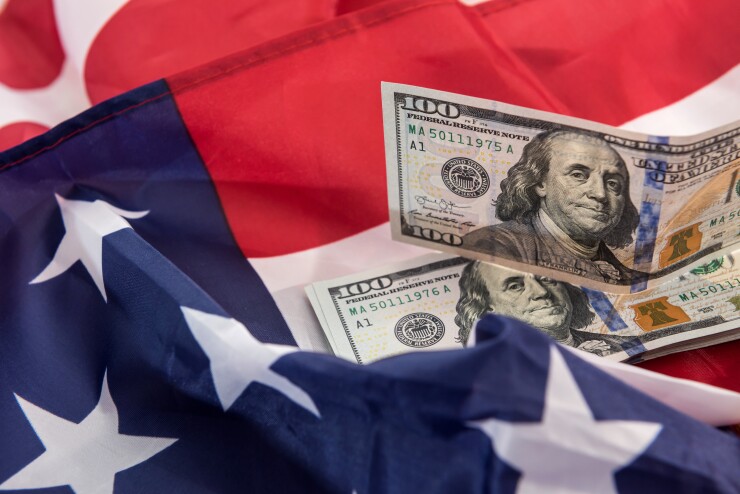
This week, President Biden will deliver his State of the Union address, in which he is expected to tout his administration's
For generations, banks have driven the U.S. economy forward, and helped millions of Americans achieve their dreams of paying for college, buying their first home and starting their small business. Comprised of nearly 5,000 institutions that vary in size, scale and offerings, the U.S. banking system is truly an embodiment of capitalism and the free enterprise virtues we hold dear. And America's leading retail banks have millions of team members who live and engage in the communities across the U.S. that they serve.
Following the Great Recession, regulators spent more than a decade instituting vast reforms that have ensured our nation's banking system is among the most well regulated in the world, with banks already spending billions annually to comply with myriad rules intended to protect consumers and bolster the resiliency of the system, including significant annual stress tests and many other requirements to ensure banks remain well positioned to weather even the most severe economic scenarios.
While banks agree with the need for appropriate levels of regulation and capital requirements, too much of either weakens the very fundamentals that separate our system from any other in the world. That's why it is deeply concerning to take stock of the current regulatory agenda from the Biden administration, which over the past year has introduced hundreds of proposals from multiple agencies that would impact nearly every line of business at banks today. Each of these, on their own, would have significant impacts on banks' ability to lend and could reduce Americans' access to credit and increase costs for families and small businesses. Collectively, these proposals would also likely force some banks out of the market, push lending to less regulated venues, weaken America's competitiveness and slow our economy.
Consider, for example, the many active proposals to change how credit cards work. Notably, the Consumer Financial Protection Bureau
The Consumer Financial Protection Bureau will release a final rule Tuesday that is expected to save consumers $10 billion a year in credit card late fees. The rule is part of a larger effort by the White House to crack down on illegal fees and price hikes that President Biden will address in the State of the Union.
Meanwhile, the Federal Reserve has
We've seen this with a recent one-size-fits-all proposal to revamp banks' already highly tailored overdraft products, as well as a proposal to ban nonsufficient funds fees, which the CFPB recognizes that the vast majority of America's leading banks do not currently charge. The overdraft proposal is especially problematic as it would result in banks not being able to provide this essential short-term liquidity tool to consumers, which many have come to value. A
However well-intentioned, regulation comes at a cost. Now is the time for policymakers in Washington to step back and analyze the true cumulative impact and costs of these regulations — to the banks, their consumers and small businesses and to the competitiveness of the American financial system — and ensure regulations are guided by sound policy, not partisan politics. Doing so will help to prevent a deep and unmendable crack that could form in the foundation of our financial system, to the detriment of consumers and small businesses alike.






